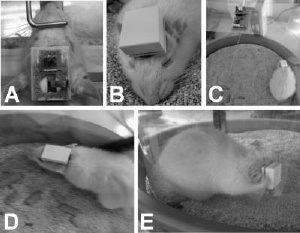Apr 20 2009
Scientists in Italy and Ireland are reporting development of the first wireless sensor that gives second-by-second readings of oxygen levels in the brain. The new microsensor - smaller than a dime - could become the basis for tiny devices to help test drugs and other treatments for patients with traumatic brain injury, Alzheimer's and Parkinson's diseases, and other conditions. The study appears in ACS' Analytical Chemistry, a semi-monthly journal.
 Scientists are reporting development of the first wireless sensor that gives second-by-second readings of oxygen levels in the brain. Credit: The American Chemical Society
Scientists are reporting development of the first wireless sensor that gives second-by-second readings of oxygen levels in the brain. Credit: The American Chemical Society
In the new report, Pier Andrea Serra and colleagues note that the most common method for monitoring brain neurochemical levels is microdialysis, a technique that requires insertion of a relatively big probe into the brain. That technique, however, has several disadvantages including low sample rate and the necessity of a complex analytical apparatus.
Serra and colleagues describe development and testing in laboratory rats of a wireless sensor that overcomes some of those drawbacks. The scientists used a variety of techniques — including physiological stimuli and pharmacological treatments — to raise or lower their brain oxygen levels. The simple sensor quickly and reliably recorded real-time changes in these oxygen levels and can help provide a better understanding of the brain in health and disease, the researchers say. The proposed system could be used in conjunction with a wide range of microsensors and biosensors for monitoring small molecules in the brain.